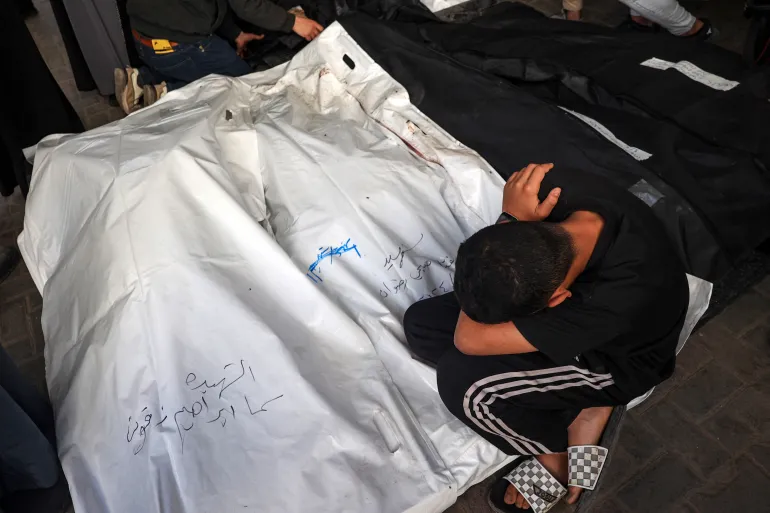LAST Thursday, just days after he had ordered strikes upon Iran, Israeli Prime Minister Benjamin Netanyahu stood outside Beersheba’s Soroka Hospital and spoke of his outrage that the building had been hit in an Iranian counterstrike.
“They’re targeting civilians because they’re a criminal regime. They’re the arch-terrorists of the world,” he said of the Iranian government.
Similar accusations were levelled by other Israeli leaders, including the president, Isaac Herzog, and opposition leader Yair Lapid, during the conflict with Iran, which ended with a ceasefire brokered by United States President Donald Trump on Monday.
However, what was missing from these leaders was an acknowledgement that Israel itself has attacked almost every hospital in Gaza, where more than 56,000 people have been killed, or that the Strip’s healthcare system has been pushed to near total collapse.
It was an omission noticeable in much of the Israeli press reporting on the Beersheba hospital attack, with few mentions of the parallels between it and Israel’s own attacks on hospitals in Gaza.
Instead, much of the Israeli media has supported these attacks, either seeking to downplay them, or justifying them by regularly claiming that Hamas command centres lie under the hospitals, an accusation Israel has never been able to prove.
According to analysts who spoke to Al Jazeera, a media ecosystem exists in Israel that, with a few exceptions, both amplifies its leaders’ calls for war while simultaneously reinforcing their claims of victimhood, all while shielding the Israeli public from seeing the suffering Israeli forces are inflicting on Gaza and the occupied West Bank.
One Israeli journalist, Haaretz’s media correspondent Ido David Cohen, wrote this month that “reporters and editors at Israel’s major news outlets have admitted more than once, especially in private conversations, that their employers haven’t allowed them to present the humanitarian crisis in Gaza and the suffering of the population there”.
“The Israeli media … sees its job as not to educate, it’s to shape and mould a public that is ready to support war and aggression,” journalist Orly Noy told Al Jazeera from West Jerusalem. “It genuinely sees itself as having a special role in this.”
“I’ve seen [interviews with] people who lived near areas where Iranian missiles had hit,” Noy added. “They were given a lot of space to talk and explain the impact, but as soon as they started to criticise the war, they were shut down, quite rudely.”
Last September, a complaint brought by three Israeli civil society organisations against Channel 14, one of Israel’s most watched television networks, cited 265 quotes from hosts they claimed encouraged war crimes and crimes against humanity, including genocide. Among them, concerning Gaza, were the phrases “it really needs to be total annihilation” and “there are no innocents.”
A few months earlier, in April, the channel was again criticised within the Israeli media, this time for a live counter labelled “the terrorists we eliminated”, which made no distinction between civilians and fighters killed, the media monitoring magazine 7th Eye pointed out.
Analysts and observers described how Israel’s media and politicians have weaponised the horrors of the past suffering of the Jewish people and have moulded it into a narrative of victimhood that can be aimed at any geopolitical opponent that circumstances allow – with Iran looming large among them.
“It isn’t just this war,” Noy, an editor with the Hebrew-language Local Call website, said. “The Israeli media is in the business of justifying every war, of telling people that this war is essential for their very existence. It’s an ecosystem. Whatever the authority is, it is absolutely right. There is no margin for doubt, with no room for criticism from the inside. To see it, you have to be on the outside.”







